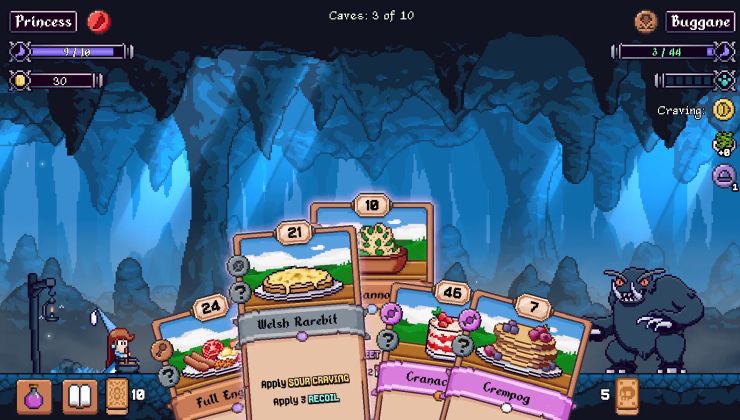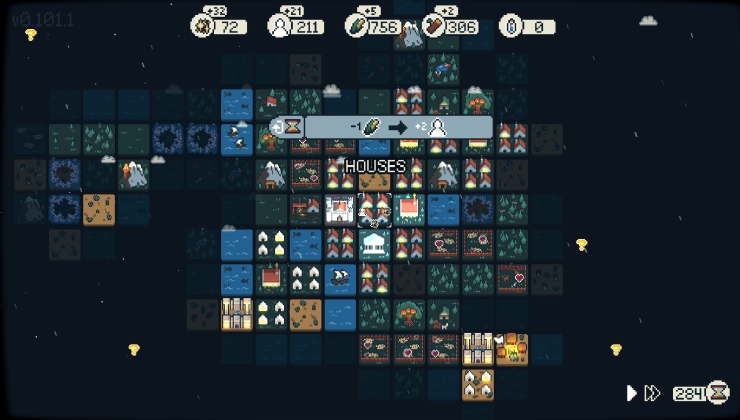After two years of work the Xfce team have release Xfce 4.20 which amongst many other things, now has very experimental Wayland support.
With it still being experimental they only recommend Wayland for "advanced users" but "almost all Xfce components are able to run on Wayland windowing, while still keeping support for X11 windowing". For now they suggest using Labwc and Wayfire, since Xfce doesn't have a compositor that supports Wayland yet but plans are underway they said to get Wayland support in their own Xfwm4.

Various other new features and improvements including improvements to the file manager Thunar like an option to use client side decorations, performance improvements, crash / freeze fixes, Ipv6 remote URLs are now supported and more. The Xfce panel can now have the border width configurable, icon size management has overall improvements, there is now the possibility to show the desktop when hovering the mouse on the "show desktop" panel icon and various other improvements.
See more in the announcement.
Do you use Xfce? If so, why do you use it and not others like KDE and GNOME?
labwc itself can do virtual desktops; there’s a desktop switcher, a 'send window to desktop' function, and the window switcher is aware of windows only in the current desktop – but I can’t figure out how to query window-per-desktop information programmatically otherwise.
waybar, wlrctl, as well as xfce-panel don’t seem to have access to that info either. Still waiting for accomodations with respect to some wayland extension, I suppose.
xfce-panel *used to* have some restrictions wrt plugins; but all the core applications on Xfce have been ported to Gtk3 a long time ago, so they all work just fine on Wayland.
Last edited by legluondunet on 16 Dec 2024 at 12:46 pm UTC
Glad to see that xfce is making the change as well. That's a really cute and solid DE.
Do you use Xfce? If so, why do you use it and not others like KDE and GNOME?I still do on my laptop! I love it for its simplicity and sufficiency. It's just the right size. I used it for many years on my desktop as well.
https://github.com/mate-desktop/mate-wayland-session
so yeah i think this will take at least couple of years to get it functional and edge cases ironed out.
I wonder which will get there first: MATE or XFCE.
But anyway, i will have to stick with X11 for many years to come :)
at least it works the way i expect it to work.
Do you use Xfce? If so, why do you use it and not others like KDE and GNOME?I use Cinnamon for daily driving; XFCE and GNOME (Pop!_OS variant) for gaming.
I am quite impressed with XFCE. It is lightweight, highly customizable and stable.
I like KDE but find it to be unstable on Nvidia Optimus, so I don't use it.
In no hurry for Wayland -- it will come when it comes.
Last edited by Caldathras on 16 Dec 2024 at 5:41 pm UTC
Should add a lot to the default Xfce.
https://wayfire.org/2019/01/13/Introduction-to-Wayfire.html
*edit*
Although reading this it looks like it will be bigger then just Compiz on Wayland
“Here’s the place where Wayfire fits in: it aims to be a base on which a lightweight wayland DEs can be built. By being split into plugins (which mostly control the appearance/window-management part) and core (providing rendering, workspaces, etc) Wayfire makes it possible to build a DE with minimal effort. Since the beginning of the project, Wayfire’s goals have also expanded to provide a rather minimalistic (but functional!) desktop environment.”
“Wayfire is heavily inspired by the Compiz window manager, and one of the implicit goals is to make your desktop look as nice as possible. So, Wayfire supports a lot of eye-candy: Cube, Expo, Wobbly windows, Animations(Burn, Zoom, Fade), 3D window switcher and more. See the demo videos if you haven’t!”
Last edited by Craggles086 on 17 Dec 2024 at 9:57 pm UTC
So Wayfire is basically Compiz for Wayland yes?Compiz was a fun toy, added nothing useful to Xfce. If Wayfire is Compiz for Wayland, I suppose I can just ignore it?
Should add a lot to the default Xfce.
On a more serious note: I'm glad Wayland support is finally progressing, but as long as my apps and games work fine on X11, I'm not too bothered. I just hope Xfce keeps being excellent at working how I expect it to work and getting out of my way.
The Thunar and Panel tweaks look nice.
Xfce gets out of the way and is adaptable to my preferences with the least effort and little to no risk of me messing it up in a way that requires waaaaaaaay too long to figure out how to fix.
Amusingly, the amount of kde software that I use does keep growing. It's a varied list that includes kwrite, kolourpaint, okular, konverter, konversation and kupfer. Kde software just integrates so gracefully on my mint xfce install, both visually and in the usability department.
The question is why are Xfce going with Wayland? I have used Xfce for years now and it is fine as it is. Why try to fix something that does not need fixing?I get what you mean, but apparently X11 is almost unmaintainable at this point, with decades of technical debt. The fact that it was mainly X11 maintainers and developers who came up with Wayland in the first place, declaring X11 maintenance only, should lend credence to this idea. They should know what they're talking about, right? I didn't even see any controversy over this back then, seemed quite unanimous.
Oh and as the article states, Xfce apps will still be able to support X11 along with Wayland.
It's undeniable that Wayland has had a bumpy road (on desktop; I've been using it on my phones for a decade), but if the experts are to be believed, it'll end up being worth the pain. Not that it has even been painful for me personally: X11 has been serving me just fine.
When the day comes that they've finally ironed out the kinks and Wayland reaches proper feature parity, it comes with nice bonuses like properly tear-free displays even on multiple monitors with different refresh rates, proper colour management (and HDR), etc. Not to mention proper security. X11 has always been rather bad at that.
The question is why are Xfce going with Wayland?Because they want to still be used on computers in a few years?
There are still a fair number of users saying "X11 is fine just keep using it" but as far as I can tell there are no actual coders saying that. Wayland is coming, slowly but it is, and that's pretty much that. It's not like SystemD where there were noticeable numbers of actual coders wanting to do something different, who for all I know may still be working away at alternative lighter-weight not-SystemD stuff that may actually work for some people. When Wayland is seriously ready, as far as I can figure distros will be gleefully hucking X11 through a window.
The question is why are Xfce going with Wayland?Because they want to still be used on computers in a few years?
There are still a fair number of users saying "X11 is fine just keep using it" but as far as I can tell there are no actual coders saying that. Wayland is coming, slowly but it is, and that's pretty much that. It's not like SystemD where there were noticeable numbers of actual coders wanting to do something different, who for all I know may still be working away at alternative lighter-weight not-SystemD stuff that may actually work for some people. When Wayland is seriously ready, as far as I can figure distros will be gleefully hucking X11 through a window.
In terms of graphics programming one serious frustration with Wayland is that renderdoc, the opengl/vulkan debugger, doesn't work properly on it -- and IIRC, the developer is waiting for some specific extension to get approved before he can finish the port.
Similarly, in terms of scriptability, although a *lot* of progress has been made, some bits of the system remain opaque to outside programs because the required extensions haven't been approved yet -- I'm not talking about obvious security hazards like key logging, but simple things like making the virtual desktop #, and the window placement info 'public'. End users not interested in scripting are also bitten by this, because they get frustrated that the desktop is unable to remember which window went where, when restarting a session.
... also, as a side note, the systemd 'bloat' argument never really had much of a basis, because the system is very modular, and it's easy to configure the modules separately. Nowadays I might be especially biased towards systemd, because after wasting months on the gobject interface to dbus, I started using the sdbus functions provided by libsystemd directly and it's a million times easier to use. So, now my little remote controlled pdf viewer on glfw has libsystemd for a dependency, but I couldn't care less -- it works a lot better, and I get to maintain my sanity.
Last edited by walther von stolzing on 17 Dec 2024 at 6:51 pm UTC
Do you use Xfce? If so, why do you use it and not others like KDE and GNOME?
Xfce has been my favourite desktop for years and I'm still using it on my desktop PC. However, I've installed KDE Plasma on my new laptop and have to say that I really like it! In fact, I have come to like it so much that I plan to change to KDE Plasma on my desktop PC as well.
I may check Xfce4 out again when wayland support has been properly implemented.
End users not interested in scripting are also bitten by this, because they get frustrated that the desktop is unable to remember which window went where, when restarting a session.I swear, I feel like I'm the only linux user whom regardless of the desktop environment heads into the settings to find and disable and session saving features.
Literally the first thing I do. I consider every reboot a new session, so I don't like things opened up from last time automatically.
I know, I'm weird.
End users not interested in scripting are also bitten by this, because they get frustrated that the desktop is unable to remember which window went where, when restarting a session.I swear, I feel like I'm the only linux user whom regardless of the desktop environment heads into the settings to find and disable and session saving features.
Literally the first thing I do. I consider every reboot a new session, so I don't like things opened up from last time automatically.
I know, I'm weird.
Maybe you turn them off because they don't work reliably? That's why I also (grudgingly) turn them off -- same with search indexing. (I remember being smitten by how well Spotlight search worked on OS X, back in 2007 ... file search on GNOME *or* KDE still isn't at the same level.)
When it works properly, though -- just put firefox and thunderbird in their respective desktops/positions, don't open 50 empty terminal windows, etc. -- it's a useful feature.












 How to set, change and reset your SteamOS / Steam Deck desktop sudo password
How to set, change and reset your SteamOS / Steam Deck desktop sudo password How to set up Decky Loader on Steam Deck / SteamOS for easy plugins
How to set up Decky Loader on Steam Deck / SteamOS for easy plugins
See more from me